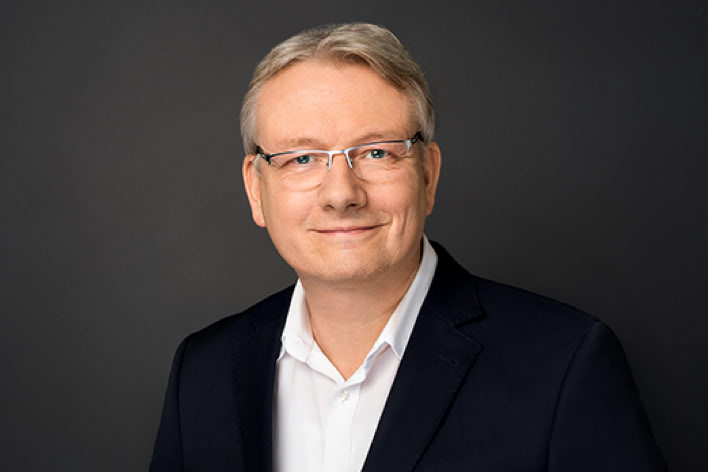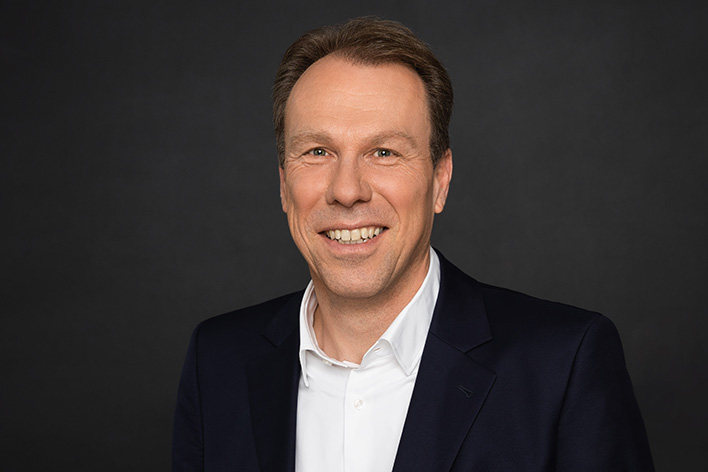Wiesbaden, 1 March 2023 - On 20 July 1923, Deutsche WohnstättenBank AG was founded as a non-profit institution to provide urgently needed loan funds to the building and housing industry. Renamed Deutsche Bau- und Bodenbank AG in 1926, the institution played a part in financing over one million publicly funded homes in the inter-war years. Despite the uncertain times and the risky business, the Bank's operations were economically successful.
Bau- und Bodenbank relinquished its non-profit status in 1935, losing its sociopolitical character in the process. Nevertheless, the Bank initially remained true to its main areas of business in the context of National Socialist economic and settlement policy. The Bank increasingly faced threats to its survival during the course of the war, as arms production took priority over housing construction. Business effectively came to a halt at the end of 1944.
A new beginning after the Second World War – Germany's economic miracle as a construction miracle
The turning point came with the currency reform in 1948 and the foundation of the Federal Republic of Germany in 1949, when Bau- und Bodenbank entered a phase of growth in which it played an important part in the public promotion and financing of Germany's reconstruction. It was one of the selected institutions that were permitted to award government funds for house building, and had created a unique selling point on the market at that time by offering interim financing for home loans and savings contracts.
To enable it to work more efficiently and cost-effectively, the Bank ventured into electronic data processing as early as 1957. One of its pioneering achievements was to offer companies in the housing industry a central external data processing service – marking the start of the new IT services line of business that later gave rise to the subsidiary Aareon AG and the Banking & Digital Solutions segment.
Oil crisis overcome, followed by privatisation, IPO and international expansion
The first oil price crisis in the 1970s also led to a crisis in the housing industry and its financing banks. During this period, Bau- und Bodenbank was provided with public sector support in the form of loans and guarantees. After this difficult phase had been overcome, the federal government bundled its property-related banking activities under the umbrella of Deutsche Pfandbriefanstalt, which had been based in Wiesbaden since 1949. Bau- und Bodenbank became a subsidiary that focused more on business with small and private clients. At the turn of the year 1989/90, Deutsche Pfandbriefanstalt was converted into a German public limited company, the IPO of "DePfa" followed in March 1991. The newly privatised banking group proceeded to expand internationally while also promoting commercial property financing. In 2001, the Group then split into two independent specialist banks, leading to the creation of the listed Aareal Bank AG for the property-related business, including its subsidiary Aareon for IT services.
A risk-conscious attitude pays off in times of crisis
Aareal Bank significantly ramped up its international commercial property financing business again in the new millennium. The foreign branches that the Bank had had in Europe and North America since the 1990s were rapidly followed by further branches, including in Asia. Aareal Bank was now represented in more than 20 countries on three continents. Yet despite this urge for expansion, the institution pursued a risk-conscious and forward-looking business policy. This paid off during the 2007/2008 financial crisis: even in these years, the Bank remained in the black.
This business policy, which is geared towards the long term, was extended to include environmental and social aspects in 2012 and set out in the form of a sustainability strategy. Aareal Bank Group also signed up to the United Nations Global Compact in the same year.
Aareal Bank in 2023: a partner to the property industry
Today, Aareal Bank has three segments: it is an international specialist for property financing, the lead bank to the German housing industry offering traditional banking services and digital solutions, and – with Aareon – Europe's leading software company for the property industry. Aareal Bank is in an excellent position on its 100th birthday, as Chief Executive Officer Jochen Klösges confirms: "We are both a mid-sized specialist and a global player, combining a down-to-earth approach with global expertise."
Aareal Bank AG in figures:
20 July 1923 Founded as Deutsche WohnstättenBank AG in Berlin
1926 Renamed Deutsche Bau- und Bodenbank AG
1949 Head office moves to Frankfurt/Main
1957 First Data centre opens in Mainz, laying the foundations for today's Aareon AG
1979 Majority takeover by Deutsche Pfandbriefanstalt Head office: Wiesbaden
2001 Spin-off of Aareal Bank with its subsidiary Aareon
2002 IPO



